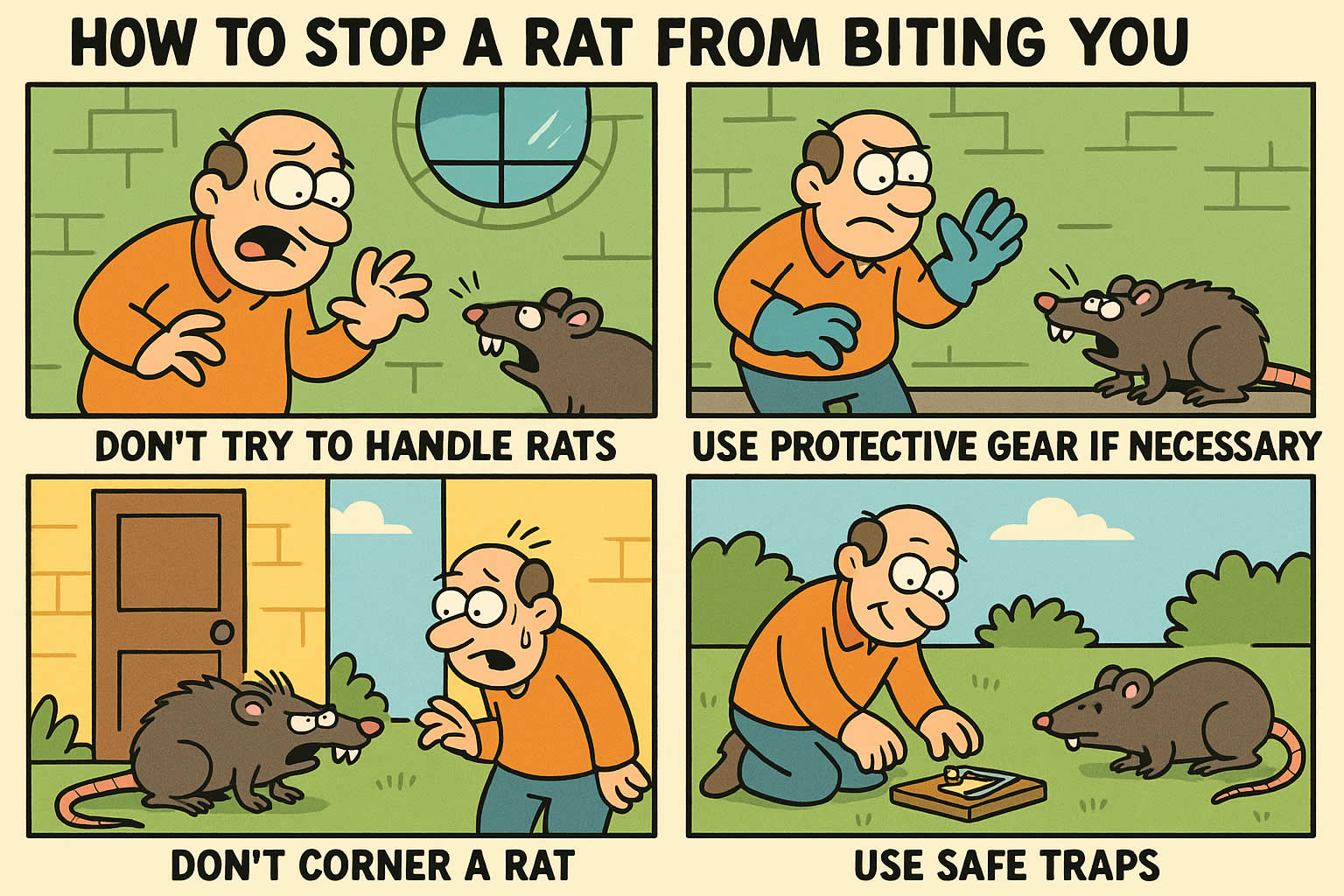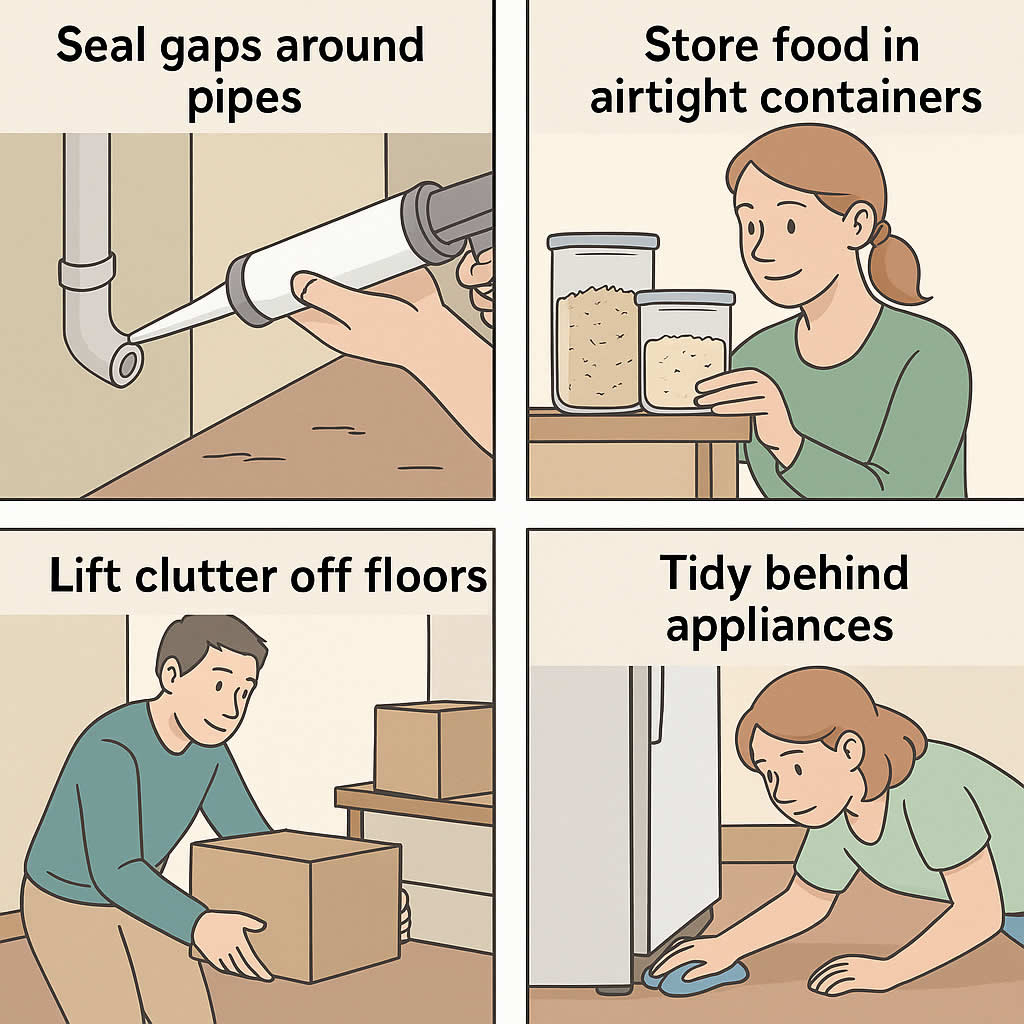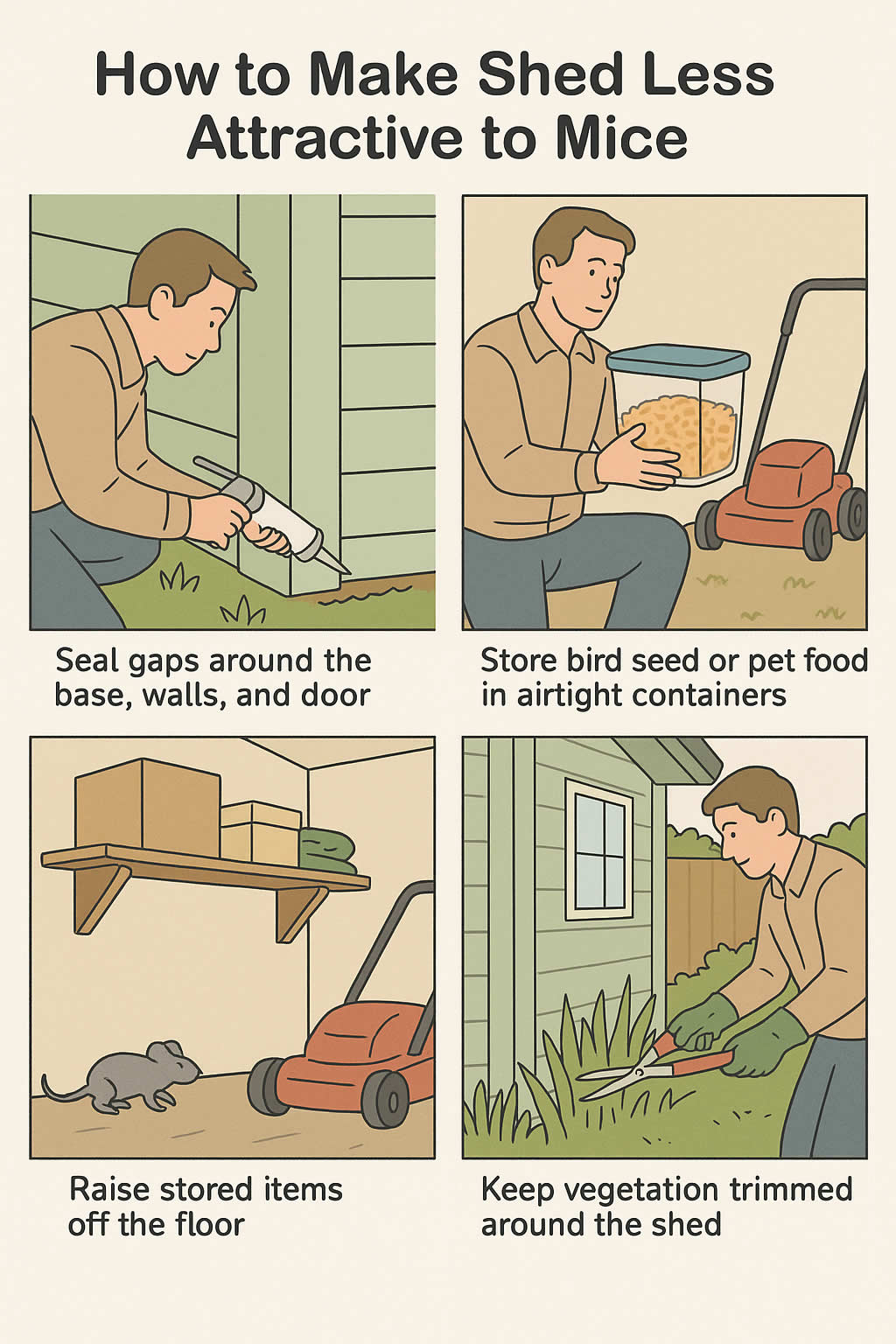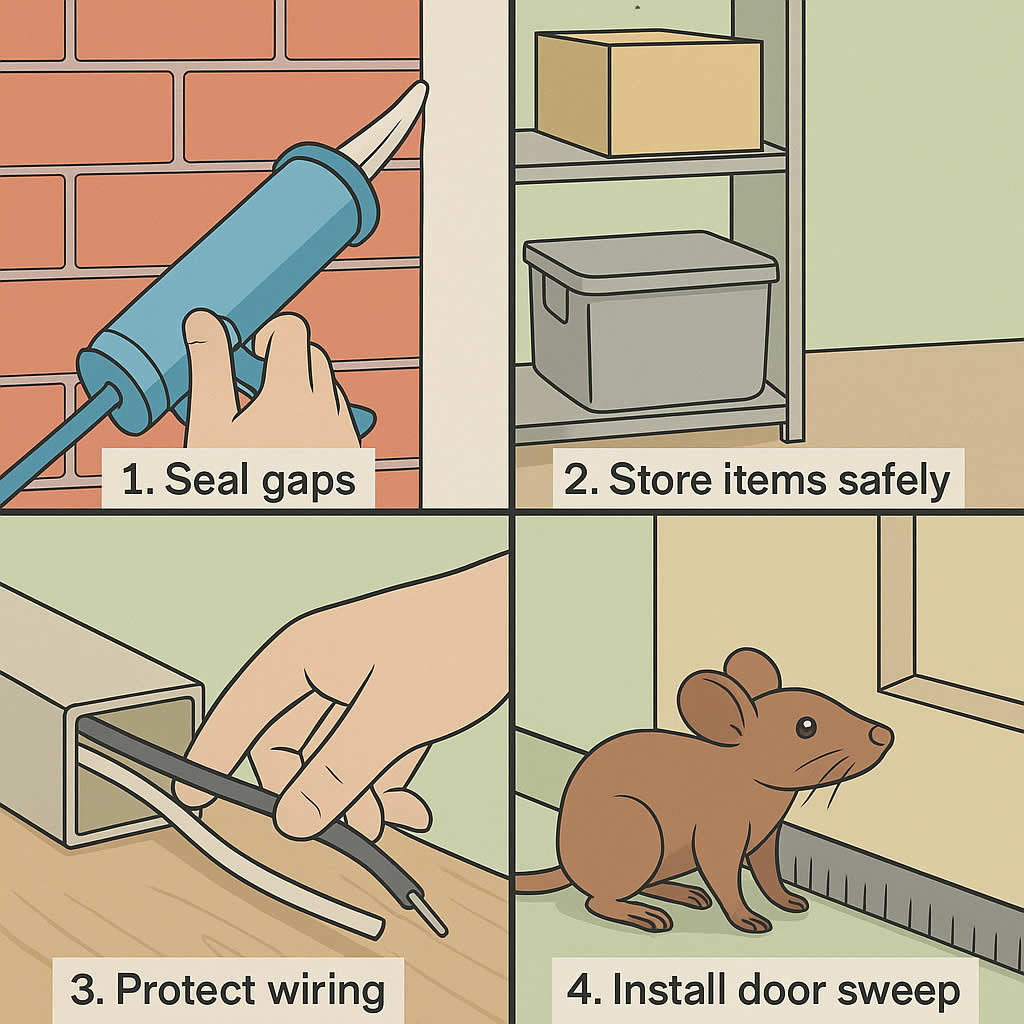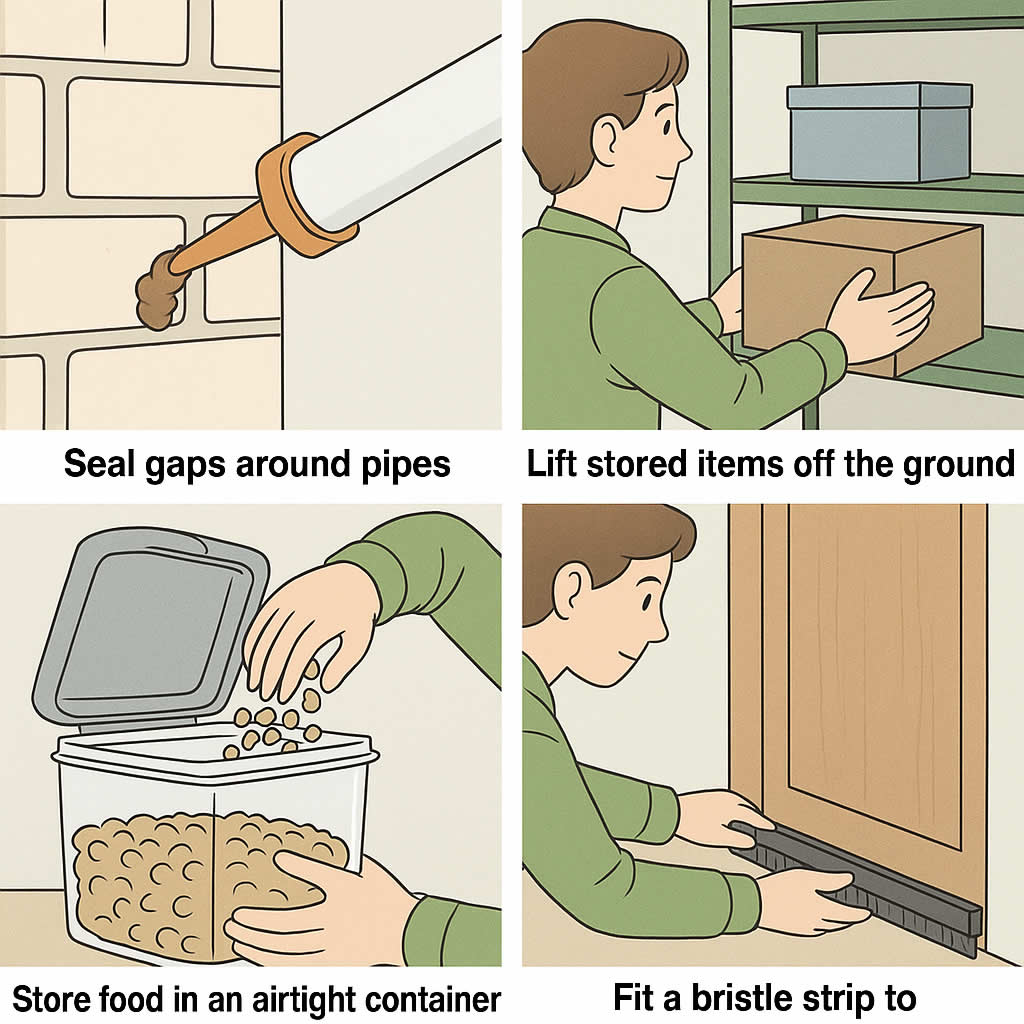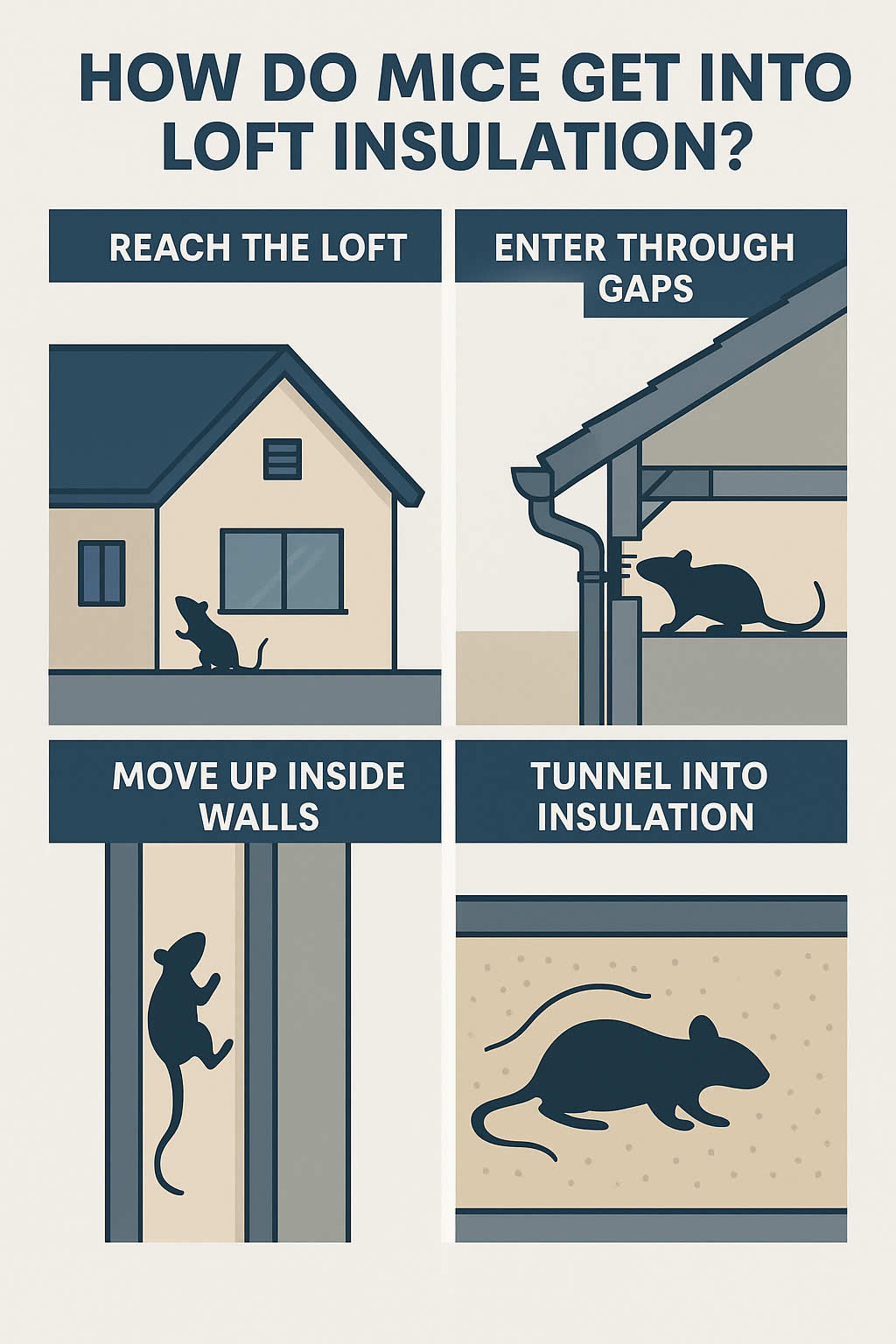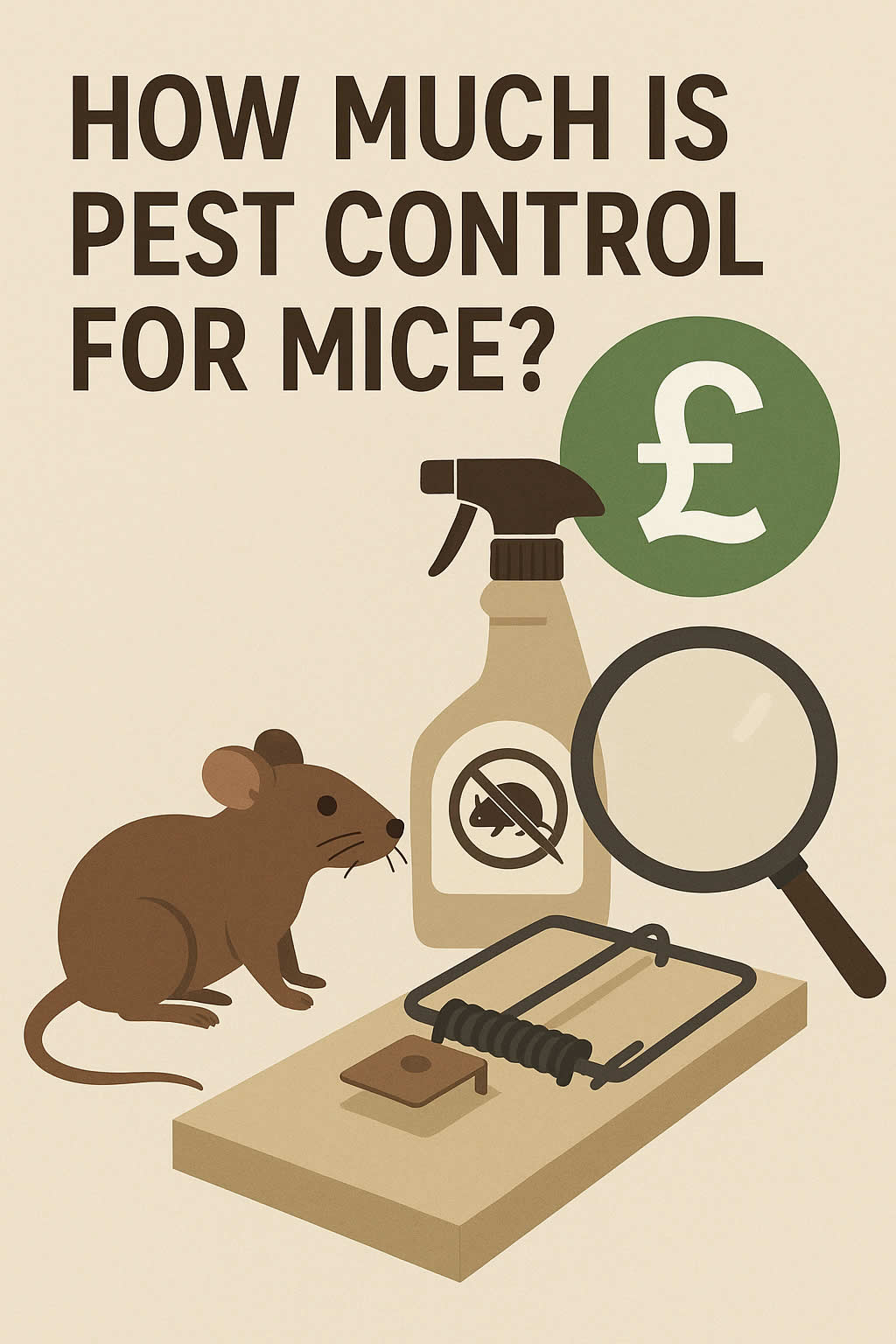Related Queries
ToggleRats aren’t just a nuisance – they can be dangerous, especially if they bite. Whether you’ve come across one in your home, your garden, or your workplace, knowing how to avoid getting bitten is crucial. Rat bites can be painful and can even lead to infections or serious diseases. In this guide, we’ll show you how to scare rats away, what to do if you come across one, and how to stay safe.
Why Do Rats Bite? Understanding the Threat
Rats bite when they feel threatened or cornered. Wild rats see humans as a threat, and if they can’t escape, they may attack to defend themselves. But it’s not just fear that makes them bite. Here are the main reasons why a rat might lash out:
- Feeling Trapped: If a rat has no way out, it will defend itself.
- Surprise or Panic: Sudden movements or loud noises can scare a rat, causing it to bite.
- Injured or Sick Rats: An injured rat is more likely to bite because it’s in pain.
- Food Protection: Rats can be very protective of any food they find.
Understanding these reasons can help you avoid dangerous situations.
How to Spot a Dangerous Rat
Knowing when a rat is about to become aggressive can keep you safe. Look for these warning signs:
- Bristled fur and a crouched stance: This is a sign of fear and aggression.
- Loud squeaking or hissing: A clear warning that the rat feels threatened.
- Sudden movements or charging: Some rats may rush at you to scare you off.
- Biting objects around them: A stressed rat may gnaw on anything nearby.
If you see any of these signs, keep your distance.
How to Prevent Rat Bites: Practical Tips
If you’re dealing with skittish rats in your home or workplace, avoiding bites is all about taking the right precautions. Here’s how you can protect yourself:
Don’t Try to Handle Rats
Wild rats are not like pets – they don’t want to be touched. If you see one, stay back.
Use Protective Gear if Necessary
If you must go near a rat, wear thick gloves and long sleeves. This can protect you from bites.
Avoid Sudden Movements
Quick movements can scare rats, making them more likely to bite. Stay calm and move slowly.
Don’t Corner a Rat
Always leave it an escape route. If a rat feels trapped, it will defend itself.
Use Safe Traps Instead of Direct Contact
If you’re dealing with a rat problem, use traps to catch them without risking a bite. Snap traps, electric traps, or live traps are far safer than trying to catch a rat by hand.
Keeping Rats Out of Your Home: Prevention is Better than Cure
Stopping rats from entering your home is the best way to avoid bites. Here’s how you can make your home less attractive to them:
Block Entry Points
Rats can squeeze through tiny gaps. Seal any holes around doors, windows, and walls.
Keep Food Secure
Store food in sealed containers, and clean up crumbs straight away. Rats are always on the lookout for an easy meal.
Clear Clutter
Rats love hiding in piles of junk, so keep your home tidy.
Fix Leaks
Rats need water as much as food. A leaking tap or pipe can be a water source for them.
Regularly Inspect Your Property
Check for signs of rat activity, such as droppings, gnawed materials, or scratching sounds in walls.
What to Do If You See a Rat
If you come across a rat, whether in your kitchen, garden, or shed, here’s what you should do:
- Stay Calm: Don’t scream or make sudden movements. This can startle the rat.
- Back Away Slowly: Give the rat a clear escape route.
- Don’t Try to Grab It: Even with gloves, this is risky.
- Call Pest Control: If you’re dealing with multiple rats or a serious infestation, don’t handle it yourself. Professional pest controllers have the right equipment and experience.
What to Do If a Rat Bites You
Even with the best precautions, bites can happen. If a rat bites you, here’s what you need to do:
Clean the Wound Immediately
Wash the bite with warm, soapy water. This reduces the chance of infection.
Apply an Antiseptic
Use an antiseptic cream or solution to prevent bacteria from spreading.
Bandage the Wound
Cover the bite with a clean bandage and change it daily.
Monitor for Infection
Watch for redness, swelling, warmth, or pus. These are signs of infection. If you notice them, see a doctor.
Get Medical Help for Severe Bites
If the bite is deep, won’t stop bleeding, or becomes infected, seek medical help. This is especially important if you don’t know if the rat was carrying a disease.
Diseases You Can Get from Rat Bites
Rat bites aren’t just painful – they can also spread serious diseases. Here are the main ones you need to watch out for:
- Rat-Bite Fever: This bacterial infection can cause fever, muscle pain, and a rash. You’ll need antibiotics to treat it.
- Leptospirosis: A bacterial infection spread through rat urine, which can enter your body through a bite.
- Hantavirus: A serious virus that can cause severe respiratory problems. It’s more common in some parts of the world.
- Tetanus: If the bite is deep, you may need a tetanus shot, especially if your vaccinations aren’t up to date.
If you’re bitten by a rat, tell your doctor. They can decide if you need any specific treatment.
How to Deal with a Rat Infestation Without Risking Bites
If you’re dealing with a rat problem, the best way to stay safe is to keep your distance. Here are your options:
Use Professional Pest Control
Pest controllers have the right equipment and knowledge to handle rats safely.
Choose traps that keep you away from the rat, like snap traps or electric traps. Avoid glue traps, as they can cause suffering and increase the risk of bites if you try to remove a stuck rat.
If you’re using poison, place it in secure bait stations that keep children and pets safe.
Monitor for Activity
Check your traps regularly, but don’t touch any caught rats without protection.
Avoid Handling Dead Rats
Use gloves and a plastic bag to pick up dead rats, then wash your hands thoroughly.
Should You Be Afraid of Rat Bites?
It’s natural to be worried about rat bites, but you don’t have to live in fear. By understanding why rats bite and how to avoid them, you can protect yourself.
Remember, rats don’t want to bite you – they’re just trying to protect themselves. If you keep your distance, use the right safety measures, and know what to do if a bite happens, you can stay safe.
Final Thoughts: Stay Safe and Rat-Free
Rats are a common problem, but you don’t have to let them become a danger. Keep them out of your home, use safe methods to deal with any that appear, and always stay calm if you come across one.
If you do get bitten, don’t ignore it. Clean the wound, watch for signs of infection, and get medical advice if you need it.
Your safety comes first, and with the right approach, you can deal with rats without putting yourself at risk.

